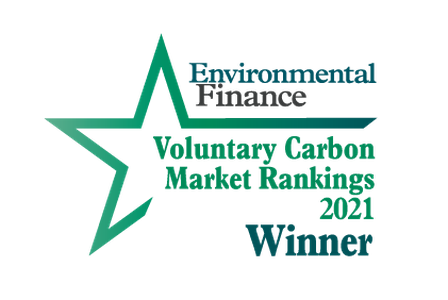Our Managing Director Jonathan Shopley was recently invited by JustShare UK and the St Paul’s Institute to debate the question “Should the private sector lead on climate change?” at the Mary le Bow Church in the heart of the City of London. He spoke for the motion against UK Labour Peer and Executive Director of the Environmental Defense Fund in Europe, Baroness Bryony Worthington. These were his opening arguments...
Jonathan Shopley, 11 April 2016 | Climate policy
“It’s a huge honour to be debating whether the private sector or government should lead the charge on climate change with Baroness Worthington, whose engagement with and positive influence on energy & climate policy I hold in the highest regard.
However, that does not mean we have a shared view on the role of government in leading the response to climate change. In fact, I intend to make the case that Government is the least qualified candidate for leadership, and if society stands expectant on Government, we’re as good as sunk in the rising tides and extreme weather that will surely follow.
I have three main arguments to support my view.
First -- Government is grossly conflicted to the point where its leadership on a response to climate risks makes no sense.
65% of greenhouse gas emissions are from the use of fossil fuels. Governments are the owners of the rights to these resources, and have either sold the rights to the private sector, or, as is the case for the majority of oil and gas production, own and exploit fossil resources through state owned or controlled enterprises. And as it happens, a very similar situation exists for another material source of greenhouse gas emissions – the exploitation and destruction of forests which accounts for a further 15+% of the global total.
Where rights have been transferred to the private sector, governments are dependent, or more accurately, addicted to, the tax revenues raised on private sector profits.
That gross dependency is highlighted by the fact that, across the world, subsidies to the fossil fuel sector amount to over half a trillion dollars a year ($550bn). That is support to an established, mature industry that is polluting the environment. In contrast, the fledgling renewable energy sector receives less than a fifth of that amount.
The point I am making is that governments have not and cannot take the lead because that would conflict with their vested, short-term interests. It’s what I’d call government’s “locked-in syndrome”.
Former President of Shell Oil, John Hofmeister said it slightly differently: “Never, ever, ever under-estimate the power of the status quo. It is huge.”
And that takes me to my second argument. Business is already in the lead, and that could well be a consequence of the fact that businesses succeed when they respond to the preferences expressed by customers and consumers every minute of every day, rather than the support of a remote electorate voting once every four or five years.
Don’t get me wrong – Governments do critically important work and Paris was a success because 196 nations came up with an agreement which will provide a framework for action. And Paris succeeded, where Copenhagen failed back in 2009, by committing all nations to national plans aimed at limiting temperature rise to 2oC or less.
So, what changed in the six years leading up to Paris? Well -- most notably, Christiana Figueres who took the UN lead on international climate negotiations after Copenhagen, broke ranks with her government paymasters by spending a significant portion of her time engaging with the private sector -- asking for its support.
And it was given – loud and clear. By business organisations including the World Business Council for Sustainable Development (WBCSD with its ~200 progressive corporate members); the CDP (formerly the Carbon Disclosure Project, representing fund managers with an aggregated $95 trillion of investments); RE100 (a Climate Group initiative with CDP engaging a growing number of businesses committed to 100% renewable energy by 2020) – and a range of other business coalitions including We Mean Business; the B-Team; Science Based Targets (a partnership amongst CDP, WWF, UN Global Compact, and the World Resources Institute); NYC Declaration on Forests and more.
You might say that these alliances don’t represent the status quo – and you’d be wrong. For example, in an unprecedented joint initiative, six ‘traditional’ oil majors including BP and Shell called on governments and the UN to use the Paris climate summit to establish a price on carbon to help their businesses make a smooth transition to a low carbon economy.
Backing these calls for action is plenty of real action from the private sector. Microsoft has for four years now made its operations carbon neutral through an internal carbon fee raised on emissions across all of its operations. The funds raised are redeployed to drive internal reductions, to procuring 100% renewable energy, and to fund carbon offset projects selected to support energy access to communities around the world. The UN recognised this leadership with a Momentum for Change Award to Microsoft at the Paris Summit.
Many other organisations are well on their way to “Getting to Zero”, including H&M, and carbon neutral Marks and Spencer and Sky, to name a few. None of these companies are doing this because of regulations or climate policy. They are doing it to manage risks and maintain and improve their competitive positions in a rapidly changing world.
However, let me go back to the Paris Agreement. The 2oC or less commitment (and it’s just a commitment at this stage) isn’t a safeguard target. Even if we are successful, scientists still believe there is a reasonable probability that complex interactions already in train across the biosphere can tip us into a new and highly disruptive set of weather patterns. The oceanographer John Englander believes we have already locked in sea level rise over the coming century that will wipe out hundreds of billions of dollars of coastal infrastructure.
So, we have the Paris agreement that will mitigate emissions to a safe limit …. maybe. What we really need is a massive wave of innovation to reduce greenhouse gas emissions, draw down atmospheric concentrations of greenhouse gases to a safe level, and help society adapt to the new climate risks and realities of the next century.
In the words of the US architect, William McDonough “Being less bad is a great thing to do and has the right trajectory but it is insufficient to the task of creating a sustaining world ....... simply reducing the things we don't want, like carbon, won't achieve the results we do want, like renewable energy.”
And that takes me to my final point – regulation and policy will not solve climate change, the power of business to innovate will.
To develop this final argument, I need the help of the Russian economist Kondratiev. Kondratiev hypothesized from a study of economic, social, and cultural life that free market economies go through roughly 50 year long-wave cycles of boom and bust. He noted technology’s role in leading the way out of contraction into the up-waves. He saw depressions as cleansing periods that allow economic re-adjustment from previous excesses to provide a base for future growth. They are a time of innovation in which technologies are refined, made cheaper, and more widely distributed.
Today’s Long Wave adherents coalesce around five technology-driven Waves:
- Industrial Revolution enabled by steam (1780 – 1830);
- Railways & heavy engineering enabled by steel (1830 – 1880);
- Chemicals enabled by electricity (1880 – 1930);
- Automobile & mass produced consumer goods enabled by petrochemicals (1930 – 1970); and,
- Communications enabled by computer technologies (1970 – 2020);
- Innovative businesses have taken us to the brink of the sixth: Natural capitalism enabled by renewable energy, nanotechnology, biotechnology and closed loop -- zero waste production & consumption (2020 – 2070?).
Is there evidence to support this? You bet. Let’s look at the energy sector. Despite fragmented or no government regulation or support, the renewable energy sector has in some technologies (wind, solar) reached cost parity with the highly subsidised fossil and nuclear sector.
Moore’s Law is working its magic in the energy storage sector too, and within a decade or so, the combination of cost efficient storage & renewable generation will bring highly distributed energy to world markets, disrupting and ultimately displacing the status quo of more expensive, polluting centralised energy supply.
Can we regulate for that level of disruption; that required revolution? No.
Can we accelerate that necessary transformation? Certainly, if we recognise the lead role the private sector is already playing so well.
And, as with all transformations, the next one won’t be without its risks and social and environmental impacts. Government needs to do its job in maintaining the social contract and do it better by protecting society from polluters, liars and cheats – without falling prey again to locked-in syndrome.
Three things done well by governments will make a huge positive difference in supporting the private sector’s work and leadership:
- Do the enabling research that supports the transition – as government did for all the key technologies that make your phone smart.
- Make markets work better by putting a price on carbon and a value on natural capital.
Shift the basis for taxation from labour to scarce resources.
A focus on these three critically important enabling activities is probably all government really needs to do to support the private sector as it leads us into the next long wave – Natural Capitalism. It certainly has the track record, the courage, the funds and the innovative instincts to do so.”
To view the debate and hear Baroness Worthington’s rebuttal to Jonathan’s view: visit here.
Dernières actualités

New test article 2023
A dummy article to test title issue.
Pour en savoir plus
FR Test News Article
Article test en français
Pour en savoir plus
Natural Capital Partners and ClimateCare become Climate Impact Partners
Natural Capital Partners and ClimateCare become Climate Impact Partners and sets goal of delivering 1 billion tonnes of emission reductions by 2030.
Pour en savoir plusLes toutes dernières Insights de
Climate Impact Partners

10 idées reçues à abandonner sur la compensation carbone
10 idées reçues à abandonner sur le net zéro et la compensation carbone.
Pour en savoir plus
FR Test insight article
Testing all plug-ins in 2 column format for French
Pour en savoir plus
FR - Innovation test insight article
As carbon markets grow and innovate how can Web 3.0 be harnessed in a positive way to build scale and impact?
Pour en savoir plus









